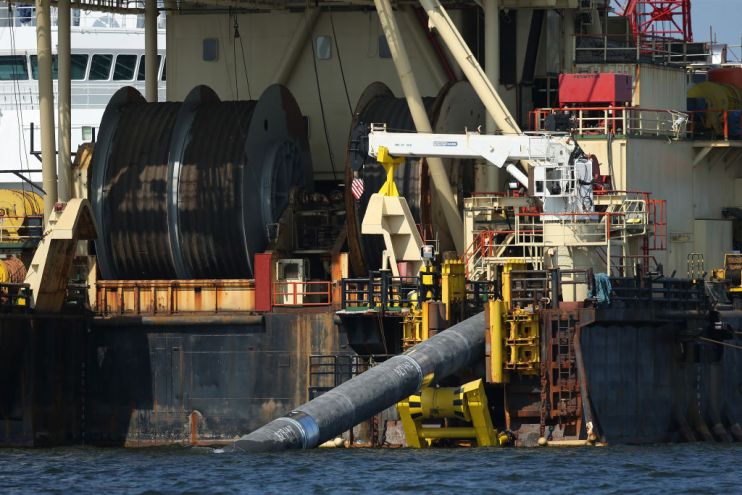German energy firms risk being nationalised as cabinet backs emergency measures

Germany’s government could soon have the power to seize ownership of energy companies to secure supplies in the event of an emergency.
The proposal was approved yesterday by the cabinet as a last resort option, following Russia’s invasion of Ukraine and continued conflict in the country.
It will now be presented to the Bundestag as an amendment to be voted on by lawmakers next month.
If passed, the government would be able to place energy companies under trust administration should energy security be threatened.
It has already adopted this strategy with Gazprom Germania, the trading and transmission business abandoned by Kremlin-backed Gazprom .
Economy Minister Robert Habeck said: “We must be ready for the situation to worsen. Prices are high, uncertainty is high and risks are on hand.”

This follows the triggering of an emergency plan to manage gas supplies last month, the first step in a three-phase plan that could result in energy rationing.
Germany is heavily dependent on Kremlin-backed energy and relies on Russia for 55 per cent of its natural gas supplies, well above the 40 per cent average in the European Union (EU).
So far, the EU has brought forward five packages of sanctions on Russia – initially targeting its central bank and financial institutions.
It has since joined forces with the US and UK in restricting coal imports, and is weighing up a proposal to phase out Russian oil supplies.
Germany and Netherlands have unveiled plans to wean themselves off Russian oil by the end of year while Lithuania has unilaterally banned Russian gas imports.
However, the trading bloc has failed to coalesce around a unified position on Russian oil – with the EU reliant on the country for 27 per cent of its oil imports.
EU scrambles to ensure supply security ahead of winter
Despite failing to agree on oil restrictions, the EU has managed to adjust its policies in other key areas.
For instance, there is a renewed emphasis on energy storage following last winter’s crisis, when the bloc staved off power outages with the aid of frequent top-ups in liquefied natural gas (LNG) from the US.
It is now aiming to maintain 80 per cent storage levels of natural gas supplies ahead of this winter – with supplies currently below 30 per cent.
A key aggravating factor is Russia’s call for overseas buyers to pay for its gas supplies in roubles – with the Kremlin revealing that Gazprom was implementing the presidential decree.
“All the contacts with buyers of gas have been made via Gazprom, so Gazprom will publish information on the results of the talks,” revealed Russian government spokesman Dmitry Peskov.
He also announced payments for deliveries that took place after Russian President Vladimir Putin’s decree took effect were expected next month.
The West initially rejected the rouble payment scheme, but the Kremlin has since warned Europe it risked gas supplies being cut unless it paid in roubles.
The Kremlin has also described the gas payment scheme – where funds are converted in roubles at Gazprombank – as a prototype which could be extended to oil, coal and wheat.
Last week, European Commission that European companies may be able to tolerate Russia’s demand provided the conversion process takes place – rather than demanding lump sums of roubles from continental buyers.
Companies would also have to obtain confirmation that contractual obligations are complete once they have deposited the non-Russian currencies
Uniper, Germany’s main importer of Russian gas, yesterday claimed it would be possible to pay for future supplies without breaching European Union sanctions
Hungary has also revealed it planned to comply with Russian demands to secure gas supplies.
The EU has spent €41.9bn on Kremlin-backed oil, coal and gas since Russia invaded Ukraine, more than 10 times the amount of aid it has provided to the besieged country, according to CREA analysis.